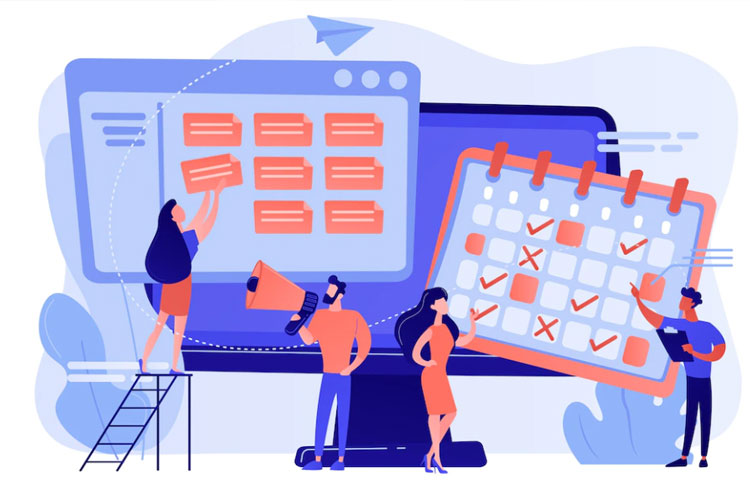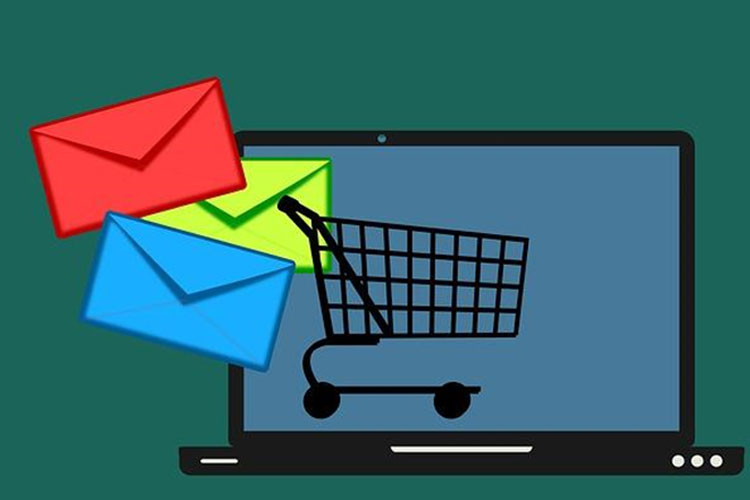Case Studies: Successful B2B Marketing Campaigns and What We Can Learn

TIMESINDONESIA, JAKARTA – In the world of B2B marketing, success is often measured by the impact a campaign has on driving business results. Effective B2B marketing campaigns are the result of careful planning, creative strategies, and a deep understanding of the target audience. To shed light on what makes a B2B marketing campaign successful, we'll explore a series of short case studies that provide real-world insights. These B2B marketing case study examples will demonstrate the best practices and strategies that have led to remarkable outcomes.
The Power of Storytelling: Cisco's 'The Network. Intuitive.' Campaign
Cisco, a global technology leader in networking, security, and collaboration solutions, is no stranger to effective B2B marketing campaigns. In 2017, they launched 'The Network. Intuitive.' campaign, which aimed to introduce their new networking technology while fostering a sense of innovation and transformation in the industry.
Advertisement

What Worked:
Storytelling: Cisco recognized the power of storytelling in marketing. They created a compelling narrative around the concept of an "intuitive network" and how it could revolutionize businesses. This storytelling approach made the campaign relatable and memorable.
Simplicity: The campaign focused on a single, clear message. It simplified a complex technology concept into something that was easy for their target audience to understand.
Multi-Platform Approach: Cisco utilized a variety of platforms, from video marketing to social media, to reach their audience where they spent their time.
What We Can Learn:
Cisco's 'The Network. Intuitive.' campaign teaches us that in B2B marketing, even highly technical products can benefit from a compelling narrative. By simplifying complex concepts and utilizing multiple channels to reach their audience, they successfully communicated their message.
Personalization and Relevance: Adobe's 'The Email Marketing 2019 Report'
Adobe, known for its creative software, undertook a B2B marketing campaign targeting email marketers. The 'Email Marketing 2019 Report' was aimed at providing valuable insights to email marketers while showcasing Adobe's services.
What Worked:
Relevance: Adobe recognized that email marketers were the primary audience for their report. They created content that was highly relevant to this group, addressing their pain points and challenges.

Personalization: The campaign used personalized email outreach to engage their target audience directly. The recipients felt that the content was created just for them, increasing engagement.
Data-Driven Insights: Adobe's report was packed with data and insights, positioning Adobe as an authority in the email marketing space.
What We Can Learn:
Adobe's campaign demonstrates the importance of relevance and personalization in B2B marketing. By creating content tailored to their audience and using data to support their claims, they established trust and credibility within the industry.
The Art of Gamification: IBM's 'IBM Watson: Build with Watson'
IBM, a giant in the tech industry, launched the 'IBM Watson: Build with Watson' campaign to promote their Watson AI technology among developers.

What Worked:
Gamification: IBM added a gamification element to the campaign by encouraging developers to build and submit their own projects using Watson. This not only engaged the developer community but also demonstrated the technology's practical applications.
Developer-Centric Approach: IBM understood that developers had specific needs and interests. They tailored their campaign to address these, making it highly relevant to their audience.
Prizes and Incentives: IBM offered incentives such as prizes and recognition for the best projects, creating a competitive spirit and driving participation.
What We Can Learn:
IBM's 'IBM Watson: Build with Watson' campaign teaches us the importance of knowing your audience and providing them with a platform to engage and showcase their skills. Gamification can be a powerful tool to stimulate interest and participation in a B2B campaign.
Leveraging User-Generated Content: Dropbox's 'Choose Your Own Adventure'
Dropbox, a cloud-based file storage service, introduced the 'Choose Your Own Adventure' campaign, which aimed to highlight the various features and use cases of Dropbox Business.
What Worked:
User-Generated Content: Dropbox invited their users to share their own stories and experiences using Dropbox Business. This approach not only created a sense of community but also provided authentic and relatable content.
Interactive Content: The campaign was interactive, allowing the audience to explore the features of Dropbox Business in a fun and engaging way.
Social Media Amplification: Dropbox encouraged users to share their stories on social media, which expanded the campaign's reach and increased brand visibility.
What We Can Learn:
Dropbox's 'Choose Your Own Adventure' campaign illustrates the power of user-generated content in B2B marketing. It leveraged the voices of satisfied customers, making the campaign more authentic and relatable.
Continuous Learning and Adaptation: Google's 'Think with Google'
Google's 'Think with Google' is an ongoing campaign that provides marketers with insights, research, and case studies about digital marketing.

What Worked:
Ongoing Campaign: Google's commitment to providing up-to-date information and insights on digital marketing keeps the campaign relevant and valuable.
Variety of Content: The campaign features articles, videos, and reports, catering to different learning preferences.
Data-Driven Insights: Google uses data to back up their claims, adding credibility to their content.
What We Can Learn:
Google's 'Think with Google' campaign emphasizes the importance of continuous learning and adaptation in B2B marketing. Staying current with industry trends and sharing valuable information can position your brand as an authority in your field.
Conclusion
These B2B marketing case study examples illustrate the diverse strategies and approaches that can lead to success in the B2B marketing landscape. Whether it's the power of storytelling, personalization and relevance, showcasing customer success stories, gamification, leveraging user-generated content, thought leadership, creating a positive social impact, or continuous learning, each case study offers valuable lessons.
In a world where B2B marketing is evolving rapidly, these campaigns remind us that creativity, relevance, and a deep understanding of your target audience are essential. By adapting these principles to your own B2B marketing efforts, you can create campaigns that leave a lasting impact and drive tangible results for your business. So, the next time you embark on a B2B marketing journey, remember these case studies and the lessons they teach, and you'll be well on your way to crafting a successful campaign.
**) Ikuti berita terbaru TIMES Indonesia di Google News klik link ini dan jangan lupa di follow.
| Editor | : Dhina Chahyanti |
| Publisher | : Rochmat Shobirin |

